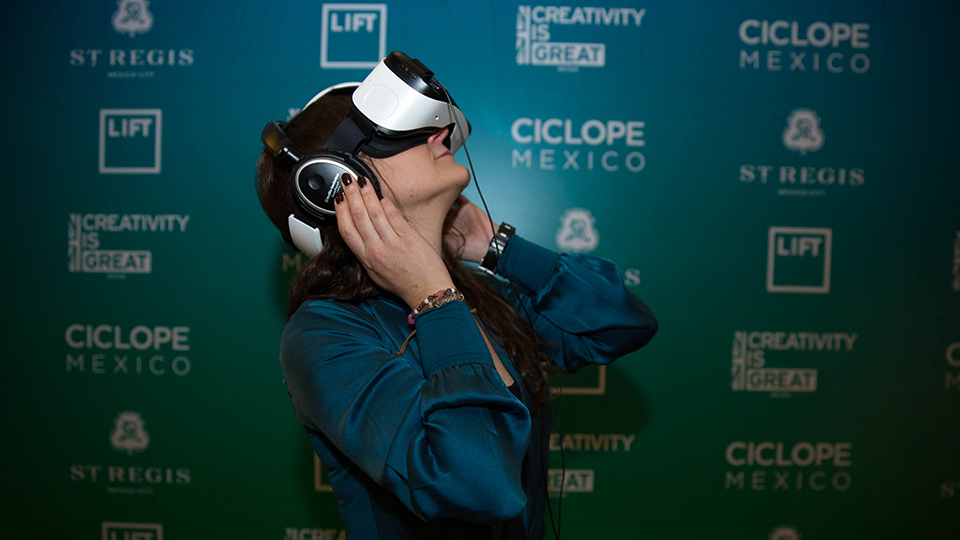
Yes, we know it’s been all VR talk at The Lift recently.
What with Ciclope last week and the VR Summit as well, it’s been hard to keep anything but virtual reality and augmented reality in our, well, reality right now.
There’s a lot of hotly contested debate going on right now around VR. Some seem to be very excited for the medium, while others dismiss VR as just a gimmick.
It seems to us that it is all in how you frame your discussion of VR. It might scare film traditionalists to say that VR is the future, but that’s misunderstanding what VR as future means. If we think about the feats that have been accomplished so far (and look no further than Framestore’s VR Studio to see some of that work), you’re looking at the dawn of a parallel form of storytelling. That is, maybe the wrong way to think about it is as the future of advertising or the future of film, but as a new platform on which to tell a component story.
The most public examples of this, like Framestore’s journey to the wall for Game of Thrones illuminate how much more immersive and interactive our experience as a viewer can be. Not only is it amazing to get the experience of watching a show, but to insert yourself into elements of that world not only provides entertainment value, but increases sentiment towards the Game of Thrones (and HBO brand) as a whole.
This is only discussing entertainment and advertising applications of VR. When we were at the VR Summit, we learned of far reaching psychological uses (for example, exposure therapy for veterans with PTSD) or scientific opportunities (like when the JPL representative spoke about troubleshooting on spacecraft), which make the medium more and more exciting.
To know we are in the very early days of an emerging technology makes this experience all the more desirable to think about. Here’s to many, many more innovative discoveries in and around the world of VR/AR!